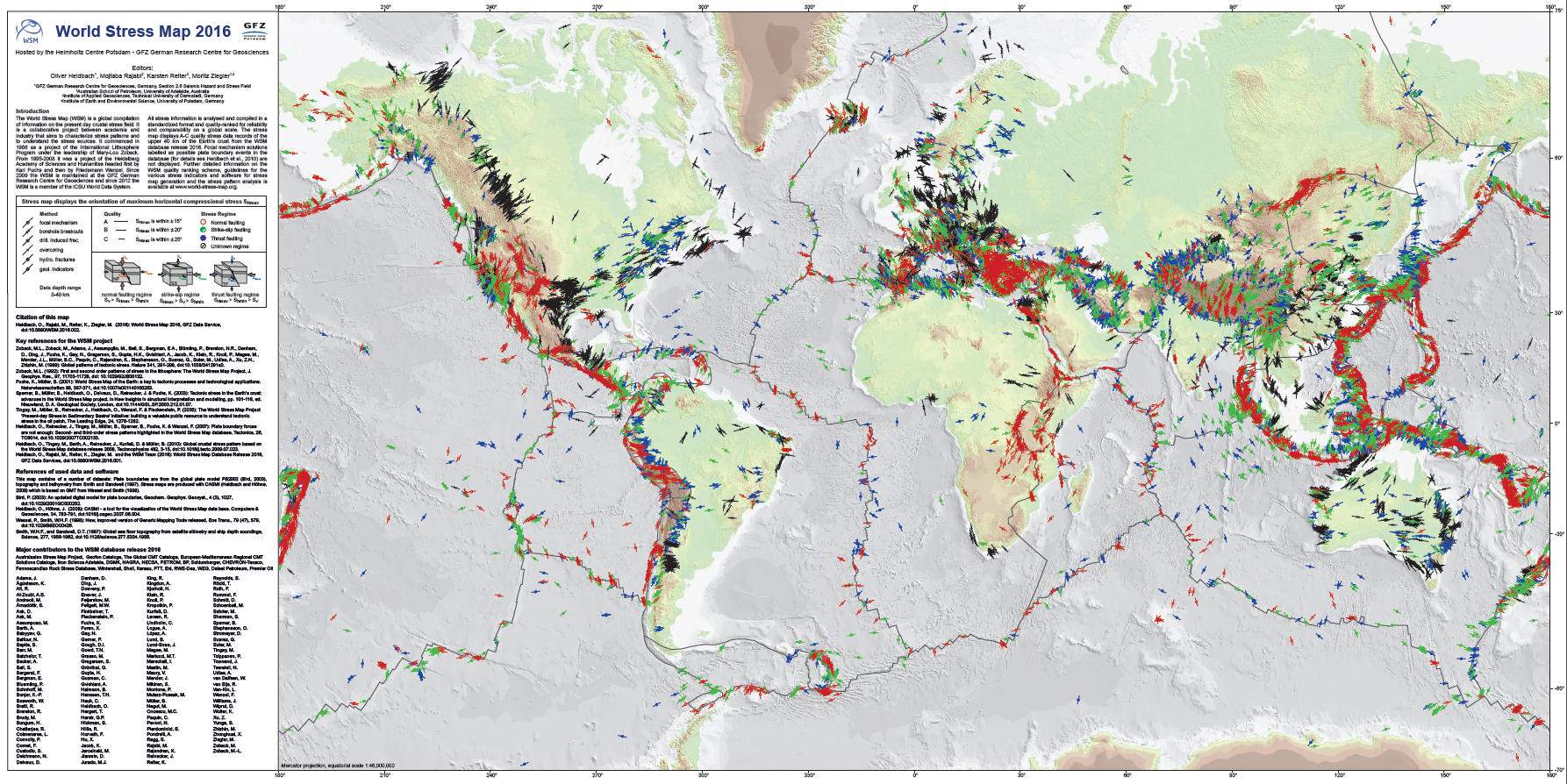Geomechanics
Research Focus
Actual population development requires numerous activities for climate protection, infrastructure, energy supply, safety of drinking water or supply with food. Those are for example drainage for irrigation purposes, impoundment of hydropower reservoirs, storage of gas in the underground, exploitation of hydrocarbons, deposition of waste in the underground, mining and tunneling and geothermal energy supply.
All of them are related to changes of stresses, strains and pore pressure in the underground, which can significantly endanger the stability of any underground infrastructure, modify the efficiency of storage sites and influence the exploitation efficiency of reservoirs. Stress, strain and pore-pressure variations can lead to the reactivation of faults und thus the generation of earthquakes (seismicity). The associated processes in the subsurface are investigated in the framework of numerous projects configured for certain aspects namely:
- World Stress Map (figure below)
- the compilation of crustal stress information - Induced seismicity in reservoirs and mines (RMS-Project, DAMAST project, floodrisk)
- Seismic risk for underground openings (SpannEnD)
- Stability and efficiency of porous gas storage sites and caverns (SUBI)
- Investigation of the coupling of Stresses and Pore pressure (SKATEPS)
A special focus of the working group is on the spatial and temporal modifications of stress-strain relations in the subsurface while taking pore pressure changes into account (pore pressure stress coupling, reservoir stress path) for which we also apply novel experimental technologies.
We are contributing with our research at least to the UN sustainable development goals External Link: #6 water, #7 energy, #9 infrastructure and #13 Climate change. Responsible Scientist: Birgit I.R. Müller Marcel Schulz (PhD student) Luisa Röckel (PhD student) Thomas Niederhuber (PhD student)
Responsible Scientists
Luisa Röckel (PhD student)
Thomas Niederhuber (PhD student)
Word Stress Map (The World Stress Map Project)


